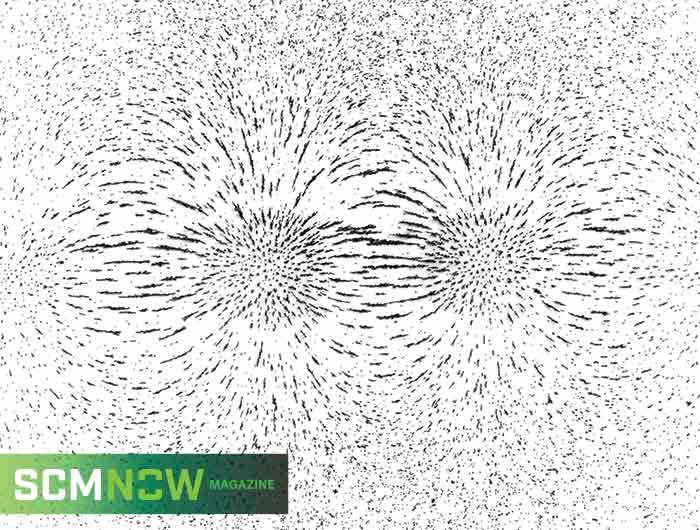Procurement specialists play a key role in supporting global supply chains. They serve as a critical link between suppliers and buyers and ensure that parts, inventory and products flow to where they are needed. Plus, organizations spend as much as two-thirds of their revenue on procurement, so even small improvements in this area can make a big difference.
However, organizations are struggling to find qualified talent to support this important area of supply chain. Deloitte's latest global supply chain survey found that more than 70% of chief procurement officers (CPOs) have trouble attracting the right talent. To fill these talent gaps, companies are turning to additional training in a variety of technical, technological and strategic skills.
To share additional insight, ASCM connected with Mike Bunge, vice president of global supply chain and operations at Hamilton Beach Brands.
ASCM: Procurement is so much more than just purchasing or sourcing. For our readers who are less familiar with this area of supply chain, what types of tasks typically fall under the procurement umbrella?
Bunge: If you look at the ASCM Dictionary, it defines procurement as “the business functions of procurement planning, purchasing, inventory control, traffic, receiving, incoming inspection, and salvage operations.” That’s on the tactical side. You have to have these areas solid before you focus on the more mature, strategic side.
In my previous experience, we worked very hard to share as much appropriate information with our contract factories as possible. We took market inputs in the form of customer orders and forecasts and scrubbed them to create anticipated needs. These needs were shared with our contract factories to inform raw materials buys and labor planning. We also need seamless communication with our inventory locations — including places that hold cycle stock, work in process and raw materials — to effectively manage inventory. Communication is a sign of a mature procurement program, so the level of communication will vary from organization to organization.
Procurement also includes supplier auditing, scorecarding, rewards and recognition. We have formal contract factory audit programs that review sustainability, social responsibility, ethics, supply chain security compliance, quality management and operations management. These areas plus performance in terms of quality, cash, cost and service drive a scorecarding system, which is used as input for our annual awards program.
My team also handled knowledge management, global sourcing, material planning and inventory control. And procurement professionals take leadership in regulatory compliance for both products and the way we do business.
ASCM: The role of procurement has been gaining more recognition throughout the past few years. Why do you think that is?
Bunge: When I first started studying procurement, my mentors told me that organizations used to place their most difficult personalities in procurement. “Put the bulldog in procurement” was a widely held belief. As organizations, employee education and supply chain as a discipline matured, this changed. Information flow and collaboration became more valued than making enemies of your supply base.
Now it’s important to work with your supply base to establish a common vision. How can we expect our supply bases to support us if they don’t share the same vision as we do? As supply chains become more and more interwoven, the playing field is no longer organizations competing against other organizations but supply chains competing against other supply chains. Supply chain management as a whole has become more recognized for its strategic and tactical importance to organizations and communities. A structured, cohesive supply chain program is no longer optional, and procurement plays a big role in managing supplier relationships and ensuring information flow.
Companies also have realized that the strategy behind purchasing really adds value to an organization. It’s not just about saving three cents on a bearing that you buy a thousand of a year. Instead it’s about partnering with your supplier’s engineers to design an even better bearing that lasts twice as long, even if it costs a nickel more. It’s about value engineering. These challenges are in front of purchasing teams every day. Some companies have really recognized this value and brought procurement to the executive table with a chief procurement officer.
ASCM: Has the COVID-19 pandemic made a difference in the esteem of procurement?
Bunge: During the pandemic, many consumers gained a better understanding of what a supply chain is and how it works. I used to prepare an elevator speech to explain my role in procurement in supply chain. But now, most people understand what I do. I can talk about it in terms of toilet paper. If you walk down store aisles and there is toilet paper, a retail buyer played a role in making that happen. Product shortages have brought both the buying role and the bullwhip effect — which is very much alive and well — to the forefront.
My team also played a critical role in helping local hospitals acquire personal protective equipment (PPE). Our local hospitals were running out of PPE and were being put on allocation by their distributors. The problem was that distributors’ warehouses were running out of the gloves, masks, goggles and other types of PPE that were needed. However, there still was PPE out there further upstream in the supply chain. Our procurement team reached out to factories directly to order the PPE and had it sent to the United States via airplane to supply our hospitals. Procurement made that happen.
Editor's note: Some of the information in this blog has been updated to reflect current research and insights. The original publish date was April 7, 2021.



